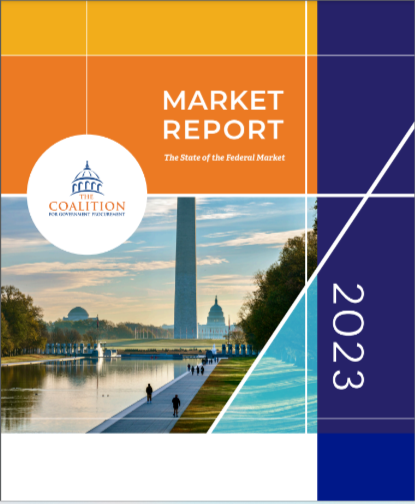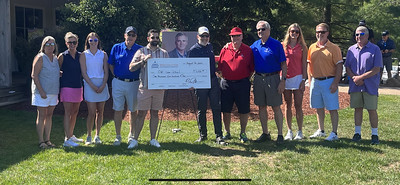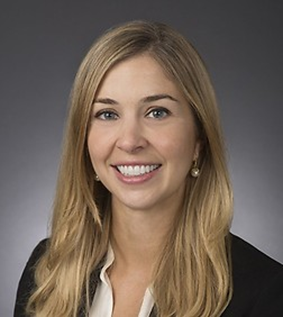FAR & Beyond: What is the Trajectory of the ASCEND BPA?
Last month, the Federal Acquisition Service (FAS) issued a draft Request for Quotes (RFQ) for the proposed governmentwide ASCEND Blanket Purchase Agreement (BPA) for cloud services. The RFQ included a statement of work (SOW) outlining the requirements for Pool 1 – Infrastructure as a Service (IaaS) and Platform as a Service (PaaS), and it invited MAS contractors to submit comments and questions on the draft SOW for FAS’s consideration in the development of final requirements for the formal, competitive phase of Pool 1 of the BPA.
Significantly, the ASCEND BPA acquisition strategy includes two other related pools: Pool 2 – Software as a Service (SaaS) and Pool 3 – Cloud Related IT Professional Services. At the ASCEND BPA industry day held on February 8th this year, FAS indicated that it was starting market research on Pools 2 and 3 and that industry partners should look for a Request for Information (RFI) for those pools this summer. Consistent with this schedule, FAS plans on first issuing a separate RFQ for Pool 1, followed by a separate RFI and RFQ for Pools 2 and 3.
The draft RFQ for Pool 1 marks the latest step in a multi-year journey towards FAS’s goal of establishing a governmentwide BPA for cloud services. In 2021, FAS issued an RFI to MAS contractors for a governmentwide, Multiple Award Cloud BPA. The following year, FAS introduced the ASCEND BPA acquisition strategy while continuing the dialogue around the structure and requirements. The RFIs, industry day, and draft RFQ together raise questions/uncertainties for FAS, customer agencies, and industry regarding the appropriate acquisition strategy. In particular, the highly commercial nature of cloud services is pushing up against government-unique requirements, bringing the ASCEND BPA to a “fork in the road.” Will the BPA “ascend” towards a streamlined acquisition strategy with corresponding requirements that embrace commercial terms and practices? Or will the BPA continue to “descend” into an overly complex acquisition strategy that incorporates layers of government-unique requirements?
Here are some of the key aspects of the current strategy that have raised uncertainty among FAS’s industry partners:
- The current pool structure is inconsistent with commercial practice and delivering an integrated, holistic cloud solution, as it will increase complexity, risk, and costs for customer agencies and MAS contractors. Its separate pool approach is compounded further by the separate procurements for each of the pools. FAS should engage with industry on the optimum approach to structuring the functions consistent with commercial practice and the underlying schedule.
- The current draft RFQ/SOW incorporates requirements that are inconsistent with commercial practice. The divergence from commercial practice will limit competition, innovation and, ultimately, value to the customer. In this regard, see generally the individual industry feedback the Coalition submitted in response to the RFQ. FAS should focus on limiting non-commercial terms to the maximum extent practicable.
- Relatedly, the layering on of additional agency-specific cloud requirements at the BPA level will increase complexity and costs for MAS contractors, which, in turn, likely will impact competition and value for customer agencies. FAS should identify a simplified, core set of requirements that generally apply governmentwide, while allowing customer agencies to tailor requirements at the task order level, thereby streamlining the process and enhancing competition. This approach also is consistent with the highly customizable nature of cloud requirements.
- The absence of agency commitments to use the ASCEND BPA continue to create risk for MAS contractors. Identifying agency commitments will incentivize industry to compete for the BPA and improve the quality of any responses submitted. In addition, this increased competition will enhance value, savings, and innovation over the long term. It is central to ensuring robust mission support through the BPA.
- As part of the overall acquisition strategy for the ASCEND BPA, FAS’ industry partners also are keen to understand how the BPA strategy fits within its overall IT portfolio currently meeting customer agencies mission support requirements. Questions remain about vertical and horizontal contract duplication arising from the ASCEND BPA acquisition strategy.
Over the course of the development of the ASCEND BPA, FAS’ industry partners have appreciated the opportunity to engage and share feedback on the acquisition strategy and requirements. Given the approaching fork in the road, perhaps it is time for a “cloud roundtable” to discuss the way forward for ASCEND in delivering best value mission support for customer agencies. Coalition members stand ready to facilitate and contribute to such a roundtable discussion to improve the program.
Introducing the FY23 Federal Market Report

As part of The Coalition for Government Procurement’s continuing effort to provide value to our members, we would like to present our Fiscal Year 2023 Federal Market Report. The report provides insights into the Federal market, including sales data on the GSA and VA Schedules, governmentwide contract vehicles, Federal healthcare contracts, and more.
If you have any questions or topics for future reports, please contact Michael Hanafin at mhanafin@thecgp.org.
Welcome Madyson Whiting, Member Services & Events Coordinator

The Coalition for Government Procurement welcomes Madyson Whiting to our team! As the new Member Services and Event Coordinator, Madyson will support members with registrations and general information about upcoming Coalition committee meetings, webinars and events. She will also support our website, member database and the Excellence in Partnership awards. Madyson is a recent graduate of Christopher Newport University in Newport News, VA with a BA in Communication Studies. Please join us in welcoming Madyson Whiting (mwhiting@thecgp.org) to the procurement community!
OMB Launches Acquisition Data Strategy
The Office of Management and Budget (OMB) issued a circular on May 30 entitled “Strategic Management of Acquisition Data and Information.” The circular launches a new governmentwide strategy to improve agencies’ ability to access acquisition data from across the government throughout the contracting process. Federal agencies will be required to share data with other agencies to avoid duplication of effort and resources. Specifically, OMB will achieve this by:
- Requiring data sharing;
- Building appropriate centralization;
- Promoting data-sharing technology;
- Centralizing data management policy framework;
- Establishing a new technical data environment; and
- Facilitating collaboration with data management.
For more details, see OMB’s Fact Sheet on its data centralization strategy.
New Single-Use Plastic Free Packaging Icon for GSA Advantage
Today, a final rule on the reduction of single-use plastics packaging (SUP) for Schedules items was published in the Federal Register. GSA also published the following press release on the final rule and a new SUP-free packaging icon that will be available on GSA Advantage! Members that offer products under the GSA Schedules are encouraged to review the following GSA announcement.
GSA finalizes single-use plastic packaging rule for Federal Supply Schedule
WASHINGTON— Today, the U.S. General Services Administration (GSA) announced it finalized a rule that encourages GSA’s Federal Supply Schedule contractors to identify single-use plastic free (SUP-free) packaging for products supplied and purchased under those Federal Supply Schedule contracts, helping agency buyers find and select products that help them cut plastic waste in their supply chains. The rule advances President Biden’s Federal Sustainability Plan by helping agencies take action to reduce and phase out the purchase of single-use plastic products to the maximum extent practicable.
The rule, which amends the GSA Acquisition Regulation (GSAR), aims to reduce single-use plastic waste by encouraging contractors to state whether they offer SUP-free packaging and whether that packaging is the default option or must be specified by the ordering agency. To make it easier for buyers to make sustainable purchases, GSA intends to highlight contractors that offer SUP-free packaging with a new product icon on ordering systems, including GSA Advantage, and intends to encourage federal agencies to consider this in buying decisions.
“The GSA Acquisition Policy Federal Advisory Committee we established to advise us on sustainability considerations for federal buying identified several risks associated with single-use plastic waste and recommended [PDF – 3 MB] we pursue rulemaking to reduce this waste stream,” said GSA Senior Procurement Executive Jeffrey Koses. “By empowering federal buyers to select products with single-use plastic free packaging from our Federal Supply Schedule, we are taking a step to address the impacts of plastic pollution and further promote long-term sustainability within federal supply chains.”
Single-use plastic packaging, as it pertains to this rule, means any plastic used for the containment, protection, handling, delivery, or presentation of goods by a producer for a consumer with the intent of being disposed of immediately after use.
As a result of the rule, there is the opportunity for Federal Supply Schedule contractors to highlight their SUP-free packaged products for the federal consumer. The new icon described in the rule will make it easier for agency buyers to identify and select products that help them meet their plastic waste reduction goals.
“The Federal Supply Schedule is the premier contracting vehicle for the federal government to obtain common commercial products and services,” said Koses. “With over 14,500 contractors and annual sales of over $45 billion, this contract vehicle is the number one way to reach federal buyers.”
To implement this new rule, GSA will deploy the icon, modify Federal Supply Schedule contracts, and encourage contractors to highlight products available with SUP-free packaging.
“This is the first broad federal acquisition rule specifically addressing the challenge of plastic waste. It emphasizes GSA’s commitment to work closely with industry to address environmental stewardship in federal acquisition,” said Koses. “We received feedback from large and small businesses, trade groups, and the public. This collaborative approach was important in refining the rule to ensure it successfully balances operational needs with environmental responsibilities.”
GSA remains committed to implementing new strategies to minimize the federal government’s environmental footprint, in line with broader federal sustainability and Administration goals, including the transition to a circular economy and achieving net-zero emissions in federal procurement by 2050.
For member questions on the single-use plastics rule and/or the new icon, contact Aubrey Woolley at awoolley@thecgp.org or (202) 315-1053.
DHS Outlines Tech Priorities in 7-Year Strategic Plan
Meritalk reports that on May 28, the Department of Homeland Security (DHS) released its first-ever Innovation, Research and Development (IRD) Strategic Plan. The plan outlines how DHS will use research and development to “keep pace with technology by leveraging research and development to address homeland security challenges.” The plan includes eight strategic priority research areas:
- Advanced sensing
- AI and autonomous systems
- Biotechnology
- Climate change
- Communications and networking
- Cybersecurity
- Data integration, analytics, modeling, and simulation
- Digital identity and trust
DHS Undersecretary for Science and Technology, Dimitri Kusnezov, described the importance of the IRD strategic plan, saying “this visionary roadmap… will empower DHS and its components to reduce risks to the homeland through optimized innovation, research, and development investments.” DHS will collaborate with stakeholders to develop strategic roadmaps for each research area that will be used to inform DHS’ budget process beginning in fiscal year 2026.
SBA Removes Cap on Loans for Clean Energy Products
The US Small Business Association (SBA) has announced the removal of its 504 Loan Program’s lending cap of $16.5 million for clean energy projects/initiatives. According to SBA Administrator Isabel Casilla Guzman, providing small businesses with access to necessary funding will help further the Administration’s efforts to achieve a clean energy economy. This is one of several SBA initiatives to invest in the development of a clean energy economy. In addition, SBA has released an updated Climate Capital Guidebook to complement its Investing in America Small Business Hub which provides more information on Federal financing programs for small businesses and their investors.
DoD Looking for AI Integration Partners
Meritalk reports that the Defense Department’s Chief Digital and Artificial Intelligence Office (CDAO) is promoting AI related procurement opportunities for contractors. The CDAO posts these opportunities on its www.tradewindai.com website. Most of the opportunities pertain to integrating AI technologies. The CDAO is particularly interested in small businesses and nontraditional organizations to help with its AI integration issues.
Join Us for the 2024 Joseph P. Caggiano Memorial Golf Tournament

Get ready to tee off at the Coalition’s 11th Annual Joseph P. Caggiano Memorial Golf Tournament, with registration now officially open! This year’s tournament will be August 21 at the scenic Whiskey Creek Golf Club in Ijamsville, Maryland. Assemble your team of friends and colleagues and save the date to compete for prizes, network with colleagues, and contribute to some worthy causes. Whether you’re an experienced golfer, a novice, or not a golfer at all, this event ensures a day of enjoyment and camaraderie for everyone.
You can register a foursome, as an individual golfer, or to enjoy the scenic views of the veranda club by clicking here.
We are honored to celebrate our dear friend Joe Caggiano through the event, and his unwavering dedication to supporting our nation’s veterans. Joe, a veteran himself, served eight years as an officer in the United States Navy where he completed multiple tours of duty, including on the USS Independence, at Navy Personnel Command, and as an instructor at Villanova University. To honor Joe’s legacy, proceeds from the tournament will support two charitable causes dedicated to the brave men and women who have served our country.
The Coalition for Government Procurement Endowed Scholarship Fund

Since 2014, the Coalition has worked with The George Washington University (GWU) to fund and endow a scholarship supporting a veteran who is concentrating their studies in the field of U.S. procurement at the GWU Law School. We are grateful to have awarded eight accomplished veterans with this scholarship, with the first being named during the 2017 golf tournament. Thanks to the continued generosity of our members, we have raised over $140,000 for the scholarship fund over the years. The Coalition is pleased to announce that this year’s scholarship recipient is Kristin Wolford Gillooly. Kristin is currently pursuing a Masters degree in Government Procurement and Cybersecurity Law at the GWU Law School. She is a Lieutenant for the Office of the Chief of Naval Operations and has received a Joint Commendation Medal for meritorious service in Afghanistan, as well as a Navy Commendation Medal for meritorious service in response to the war in Ukraine. We are thrilled to have Kristin join us at the tournament to introduce herself and give opening remarks.
Paws for Purple Hearts

Last year marked the inaugural time that we supported a new charity organization, Paws for Purple Hearts (PPH), through the Joseph P. Caggiano Memorial Golf Tournament. We are excited to announce that proceeds from this year’s golf tournament will once again support PPH! PPH is the first program of its kind that improves the lives of veterans and wounded service members facing mobility challenges and trauma-related conditions, including post-traumatic stress disorder (PTSD) and traumatic brain injury (TBI), through assistance dogs and its unique Canine Assisted Warrior Therapy® program. PPH was founded in 2006 as a research program at the prestigious Bergin College of Canine Studies and has since evolved into its own non-profit organization.
Through working with PPH over the past two years, members have learned how service dogs play an important role in veterans’ healthcare and quality of life. Since 9/11, nearly half of service members have returned home with a service-connected disability, and a large percentage of that group experiences some level of PTSD, TBI, or another mental health condition. Service dogs help these veterans by reducing the severity of their symptoms like anxiety and stress, performing tasks for those with physical limitations, and promoting social interaction and integration with others.
PPH has held over 15,000 therapy sessions and directly impacted the lives of more than 10,000 veterans and wounded service members. Watch a video on PPH’s dedication to improving the lives of veterans across the country here. Thanks to the outstanding generosity of our sponsors and members, we raised $11,000 for this wonderful cause in 2023. We look forward to continuing this support, and meeting some new service dogs, at the 2024 tournament!
Secure Your Sponsorship Today!
If your company is interested in supporting these worthy causes while also gaining exposure for your brand, there are many sponsorship opportunities available.
- Title Sponsorships – $6,000/each
- Reception Sponsorships – $4,000/each
- Lunch Sponsorships – $4,000/each
- All-Day Beverage Cart Sponsorships – $2,500/each
- Hole Sponsorships with 4 Players – $1,200/each
- Veranda Club Sponsorships – $150/each
- Hole Sponsorships (no players) – $500/each
- Golf Foursomes – $800/each
- Single Golfer – $210/each
View the full list of sponsorship opportunities here. For more information, please contact Heather Tarpley at htarpley@thecgp.org.
Thank you to our current sponsors:

Defense Digital Service’s Use of IT Violates Internal Policy
On May 29, the Department of Defense Office of Inspector General (DOD OIG) released a report on the Defense Digital Service (DDS) which found “that DDS officials relied on waivers of DoD policies… to use unauthorized information technology tools and services in violation of the DDS Charter and DoD policy.” DDS officials granted themselves waivers to use unauthorized digital service tools to store, process, and transmit controlled unclassified information. The OIG found that these officials did not request waivers to use this technology from DoD components, and instead signed their own waivers. By waiving these requirements, the OIG found that directors exposed DoD information to additional cybersecurity risk.
The OIG recommended that the Chief Defense Acquisition Office (CDAO) develop a clear waiver request process for CDAO directorates that includes a requirement to document and maintain records of requests. In addition, the OIG recommended that the CDAO assess the hardware, software, cloud services, networks, and any other tools used by the DDS since 2015 to ensure compliance with DoD cybersecurity requirements.
Coalition Seeking Feedback on Prohibited Semiconductor ANPR
The Coalition is seeking feedback on an Federal Acquisition Regulation (FAR) Advanced Noticed of Rule Making that would prohibit the procurement of certain semiconductors products and services produced by specific Chinese manufacturers. The prohibition would apply to all procurements and prevent agencies both from acquiring said services or products or services that use covered products or services for use in a “critical system”. The rule would require a provision in all solicitations for offerors to conduct a “reasonable inquiry” to certify to the non-use of covered semiconductor products or services in electronic products or electronic services provided to the government.
The government would like information on how the FAR council can clarify the scope of this prohibition, the impact of this rule, as well as what is a “reasonable inquiry” standard for determining whether a contractor uses or provides covered semiconductor products or services.
Comments should be submitted to Joseph Snyderwine at JSnyderwine@thecgp.org by COB June 17, 2024.
Legal Corner: Senate Bill Would Require Several Important Updates to the Way the US Federal Government Acquires Technology
Authored by Evan C. Williams and Howard W. Waltzman; Mayer Brown
The Legal Corner provides the procurement community with an opportunity to share insights and comments on relevant legal issues of the day. The comments herein do not necessarily reflect the views of The Coalition for Government Procurement.
A bipartisan bill introduced in the US Senate would mandate updates to federal procurement regulations and procedures for the acquisition of technology. S.4066, the Federal Improvement in Technology Procurement Act (FIT Procurement Act), was introduced in the Senate late last month by Senators Gary Peters (D-MI) and Ted Cruz (R-TX). Noting the shrinking number of federal contractors awarded contracts, the bill aims to streamline the procurement process to allow more companies to enter the federal marketplace for innovative technology solutions.
FIT PROCUREMENT ACT – KEY PROVISIONS
If enacted, the FIT Procurement Act would make a number of important changes to the current procurement system:
- Advance Purchase of Cloud Computing: The bill would amend federal law to allow agencies to acquire cloud computing, data center solutions and services, and other information and communications technology on a subscription basis.
- Commercial Solutions Openings: The bill would give the General Services Administration (GSA) and the Department of Homeland Security (DHS) permanent authority to use the innovative competitive acquisition process known as Commercial Solutions Openings (CSOs). Unlike traditional competition requirements, these procedures are more streamlined and flexible.1
- Simplified Acquisition Threshold: The bill would raise the simplified acquisition threshold (SAT) from $250,000 to $500,000. This would allow a greater number of procurements to be conducted under the simplified acquisition procedures set forth in Federal Acquisition Regulation (FAR) part 13.
- Past Performance Information: The bill would allow bidders in federal procurements to submit information related to their performance on commercial or non-government projects as relevant past performance.
- Best-Value: The bill would require GSA multiple-award contract vehicles to prioritize the use of best-value source selection procedures rather than focusing on lowest cost.
- Training for Federal Buyers: The bill would also establish requirements for federal contracting personnel to receive specialized training on the acquisition of emerging technology, such as artificial technology.
IMPORTANT CONSIDERATIONS FOR FEDERAL CONTRACTORS
The proposed legislation could give the federal government flexibility when procuring cutting-edge technologies. In turn, this added flexibility would reduce barriers for new and small businesses that may be reluctant to offer their solutions to the government for fear of red tape. The FIT Procurement Act could also benefit traditional government contractors that offer technology solutions—specifically the provisions related to the advance purchase of cloud computing and the increased use of flexible CSO procedures.
Both established and aspiring federal contractors should follow any developments on the bill. The bipartisan nature of the FIT Procurement Act suggests there is congressional support for improving the federal procurement process—especially when acquiring technology—by eliminating unnecessary obstacles. Given that Senator Peters is the chairman of the Homeland Security and Government Affairs Committee, this bill could become a priority of the committee and be expedited for consideration in the Senate.
Healthcare Spotlight: DHA and VHA Partner to Standardize Patient Safety Reporting
The Defense Health Agency (DHA) and Veterans Health Administration (VHA) have developed the Joint Patient Safety Reporting (JPSR) application to help “standardize the process for medical teams to identify and document medical and dental errors, near-miss events, and close calls that may occur,” reports Health.mil. The JPSR system is designed to “achieve high-reliability organizational processes supporting quality clinical care and zero-preventable harm across all military hospitals and clinics.”
The key features of the JPSR system are:
- Confidential, user-based access to protect data entry;
- Risk event evaluation, root cause analysis, and higher-level investigation;
- Customizable analytical tools and reports to develop and implement proper quality control measures; and
- Dashboards for monitoring, measuring, and analyzing key data.
The JPSR system’s consistent reporting improves analysis and reporting within the Federal health care enterprise to provide “ready, reliable care,” and to establish “approaches for making people aware it’s okay to speak up” about unsafe conditions.
View from Main Street: SBA’s WOSB/Outside Employment Proposed Rule
On May 16, 2024, the Small Business Administration (SBA) issued a proposed rule related to the Women-Owned Small Business (WOSB) contracting program and some of its other certification programs.[1] For the SBA certification programs where eligibility is based on ownership and control by an individual with certain characteristics, i.e., socially and economically disadvantaged, service-disabled veteran, woman or economically disadvantaged woman, SBA’s current certification rules place limits on the individual’s outside employment at another firm or entity. SBA’s 8(a) rules provide that the disadvantaged manager must devote full-time to the business during normal working hours for firms in that line of business and must get SBA’s permission to engage in outside employment.[2] SBA’s Service-Disabled Veteran-Owned (SDVO) small business rules provide that the veteran may not engage in outside employment that would prevent the veteran from devoting the time and attention necessary to control the firm’s management and daily business operations. When a veteran devotes less hours to the concern than its normal business hours, SBA assumes the veteran is not in control, unless the concern can demonstrate that the veteran has ultimate managerial and supervisory control over the long-term decision making and day-to-day management of the concern.[3] SBA’s WOSB rules are similar but not identical to the SDVO rules, and provide that if the female manager devotes fewer hours to the concern than its normal business hours there is a rebuttable presumption that the woman does not control the concern, which may be overcome with “evidence” that the woman controls the long-term decision making and day-to-day management of the concern.[4]
SBA’s rules on control are intended to ensure that the benefits of the set-aside and sole source contracting preferences flow to the intended recipients. Application of these rules should depend on context. There is a difference between a start-up with no other employees and firms where non-disadvantaged, non-veteran, or non-female individuals also own a percentage of the firm, act as directors and officers, and devote their full-time to the firm and have the experience or education necessary to manage and control the firm. SBA is proposing to apply the same outside employment standards for each of the individually based certification programs. First, the individual upon whom eligibility is based must devote full-time to the business during normal business hours and cannot engage in outside employment if it would prevent the individual from devoting the time and attention necessary to control the management and daily business operations of the concern. Second, if the individual devotes less hours to the concern than its normal business hours, SBA will assume the individual does not control the concern unless the concern demonstrates the individual has ultimate control over the long-term decision making and day-to-day management of the concern. Third, if an individual upon whom eligibility was based desires to engage in outside employment after certification, the individual must notify SBA and demonstrate that the outside employment will not prevent the individual from controlling the concern.
SBA is also proposing that only firms that are certified or that have a pending application may challenge a firm’s WOSB status on a WOSB set-aside contract. SBA is proposing that a firm applying for WOSB certification may use its SDVO certification to support its application, but a firm applying for certification as an Economically Disadvantaged WOSB must submit supporting financial information. SBA is proposing that a firm that has applied for WOSB certification and been declined three times in an 18-month period may not apply again for 12 months from the date of the third decline. Finally, SBA is proposing to clarify when a firm with a pending application is eligible to submit an offer for a WOSB set-aside contract.
[1] 89 FR 42816.
[2] 13 CFR 124.106(a).
[3] 13 CFR 128.203(i).
[4] 13 CFR 127.202(c).
Off the Shelf: A Break Down of the Proposed CIRCIA Rule

Townsend Bourne, Partner at Sheppard Mullin, joined Off the Shelf to share her insights regarding the Cybersecurity and Infrastructure Security Agency’s (CISA’s) proposed rule implementing the Cyber Incident Reporting for Critical Infrastructure Act of 2022 (CIRCIA).
At over 400 pages, the proposed CIRCIA rule is a daunting read. Bourne breaks down the rule by identifying the key aspects and corresponding impacts for those covered entities. She discusses the 16 critical infrastructure sectors covered and the corresponding number of private firms that will be subject to the rule, noting that the defense infrastructure sector will now be subject to overlapping reporting requirements (CIRCIA and the DFARS/FAR cyber incident reporting requirements).
Bourne also outlines what “cyber incidents” are to be reported, walking through the key tests for reporting. Finally, she details the mechanics and key features of the reporting process and contrasts the CIRCIA rule with the proposed FAR cyber incident reporting rule.
Listen to the full podcast here.
Now Available: False Claims Act Update for Government Contractors Webinar

On June 6, Perkins Coie Partners Alexander Canizares and Barak Cohen provided an overview of the False Claims Act (FCA) enforcement landscape in 2024 with a focus on developments relevant to commercial contractors.
Drawing on their experience handling FCA investigations and litigation as well as mandatory disclosures, Alex and Barak addressed DOJ’s procurement fraud enforcement priorities, including its Civil Cyber-Fraud Initiative focusing on using the FCA to redress non-compliance involving cybersecurity and the implications of FCA enforcement for contractors facing new and emerging programs such as DoD’s cybersecurity assessment initiative. In addition, the presentation covered:
- DOJ efforts to incentivize companies to self-disclose non-compliance as well as cooperate in DOJ investigations.
- The latest developments related to DOJ’s use of the FCA to pursue fraud involving the Paycheck Protection Program (PPP) and pandemic-related loans.
View the webinar recording here.
DoD Seeking Comments on AI from Defense Industrial Base
The Coalition is seeking feedback on a Request for Information (RFI) from the Department of Defense (DoD) on how to adopt AI for defense applications. The purpose of DoD’s RFI is to gather insight on the policy goals defined in Executive Orders 14017 and 14110, and the Data, Analytics, and Artificial Intelligence Adoption Strategy to “support their efforts in developing policies, initiatives, and resource distribution to ensure support for the defense industrial base (DIB) in integrating AI into defense systems.” A public hearing is being considered. A Federal Register notice will be published with the date and information if a hearing is scheduled.
The RFI has 13 questions pertaining to infrastructure/supply chain resilience, workforce, innovation, acquisition, policy, and regulatory environment.
To see the full list of questions, click here.
The Coalition is considering submitting comments on the RFI. Members, please send any feedback on the RFI to Joseph Snyderwine at jsnyderwine@thecgp.org by July 10, 2024. The deadline to submit comments to DoD is July 22, 2024.
IT/Services Committee Meeting on MAS Insights, June 11

On June 11 at 10:00 AM (ET), the IT/Services Committee will host a members-only meeting with The Gormley Group on the latest trends in Federal contracting. Sonia Pesantes, Managing Principal Consultant, and Sean Nulty, Principal Consultant, will present insights from their experiences with the Information Technology (IT) center at GSA with a focus on fair and reasonable pricing negotiations.
To register for this members-only meeting, click here.
The meeting will be hosted by GDIT at 3150 Fairview Park Drive, Falls Church, Virginia. Virtual attendance is also available.
Please submit all questions to Joseph Snyderwine, JSnyderwine@thecgp.org.
General/Office Products Committee Meeting on FAS Catalog Platform, June 24
On June 24, the Coalition’s General/Office Products Committee will meet with Peter Han, Branch Chief, Catalog Management Office at GSA. Mr. Han will provide an update on the FAS Catalog Platform (FCP) Rollout. The meeting will cover the upcoming plans for FCP. GSA is also seeking member feedback on their experience with the FCP to inform future improvements to the system.
To register for this virtual members-only meeting, click here.
Please provide any feedback or questions to share with GSA in advance of the meeting with Joseph Snyderwine at JSnyderwine@thecgp.org.
Small Business Committee Meeting on IT Value Added Resellers, June 26
On May 7, GSA’s IT Vendor Management Office released an RFI as part of an assessment of the challenges Original Equipment Manufacturers, Value Added Resellers (VARs), and Federal Agencies face in using small business VARs and the development of recommendations on how to increase the number and utilization of small business VARs in the Federal IT marketplace.
Following up on the RFI, the Coalition’s Small Business Committee will be hosting representatives from GSA and the Small Business Administration to continue the discussion with small businesses on the challenges faced in the Federal IT marketplace. The members-only meeting will be held virtually on June 26 from 10:00 – 11:00 AM (ET).
Our government guests for the meeting are:
- Clarence Harrison Jr, Senior Advisor, IT Vendor Management Office, ITC, FAS
- Warren Blankenship, Deputy IT Government-wide Category Manager, Government-wide IT Category Management, ITC, FAS
- Angela Washington, Office of Business Centers, Minority Business Development Agency (MBDA), U.S. Department of Commerce
To register for this members-only meeting, click here.
If you have any questions about the meeting, please contact Joseph Snyderwine at JSnyderwine@thecgp.org.
Green Committee Meeting on Sustainable Procurement and Ecolabels, July 9

On July 9 at 1:00 PM (ET), the Green Committee will host a members-only presentation from the Environmental Protection Agency (EPA) on ecolabels and sustainable procurement. Guest speakers will be Jenna Larkin, the Acting Section Lead for the EPA’s Environmentally Preferable Purchasing (EPP) Program, and Jonathan Rifkin, a Specialist and sustainable acquisition expert on the EPP team.
Jenna and Jonathan will break down the FAR Council’s recently adopted Sustainable Procurement rule, effective as of May 22, which reorganizes and condenses the Federal Government’s approach to sustainable purchasing. They will also cover recent developments regarding the EPA’s Ecolabels program.
To register for this members-only meeting, click here.
If you have advance questions for Jenna and Jonathan about the Sustainable Procurement rule, please email Greg Waldron at gwaldron@thecgp.org by July 2, COB.
Upcoming GSA Webinars
1. FAS Policy Landscape Webinar on Current Policy Changes Affecting the Federal Marketplace
On June 20, GSA FAS Office of Policy and Compliance (OPC) is hosting a webinar on current and emerging policies and updated Federal Acquisition Regulations (FAR) impacting federal contractors. During this webinar, you will learn about updates to policy and regulations, and hear from representatives from the Environmental Protection Agency (EPA).
The topics will include:
- Overview of EPA’s Recommendations of Specifications, Standards, and Ecolabels for Federal Purchasing
- FAR Cases:
- Sustainability and Climate
- Sustainable Procurement – Final Rule
- Supply Chain Risk Management (SCRM)
To register, click here.
2. SAM.Gov Industry Stakeholder Forum
On June 25, GSA is hosting its next IAE industry stakeholder forum on the various roles available in SAM.gov, as well as the importance of ensuring your organization always have more than one Entity Administrator. This stakeholder forum is appropriate for all SAM.gov users who want to learn about entity roles.
To register, click here.
VA Data for Healthcare Members
To increase the number of valuable tools available for members, the Coalition has compiled several data sets pertaining to VA Medical Centers’ procedures, diagnoses, and product spend. Below is a description of the different VA data reports that the Coalition can provide to healthcare members based on areas of interest to their business:
- Diagnosis data by each VA Medical Center: Members can request a report by providing the relevant International Classification of Diseases (ICD)-10 codes of interest to their business.
- Procedure data by each VA Medical Center: Members can request a report by providing the relevant Current Procedural Terminology (CPT) codes of interest to their business.
- Prosthetic (medical implants, DME) product spend by VA Medical Center: members can request a report by providing the relevant Healthcare Common Procedure Coding System (HCPCS) codes of interest to their business for items managed by VHA Prosthetics.
For any data requests or related questions, please contact Michael Hanafin at mhanafin@thecgp.org.